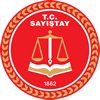Audit Principles

As per Article 160 of the Constitution,
The TCA audits all revenues, expenditures and assets of public entities within the scope of central government budget and social security institutions on behalf of the Turkish Grand National Assembly.
The TCA also audits and gives final judgment on the accounts and transactions of local governments.
In Article 165 of the Constitution, it was stipulated that the principles for the audit of public institutions and partnerships, in which more than half of the capital directly or indirectly belong to the State, by the Turkish Grand National Assembly would be regulated by law, and this audit task was given to the TCA with the Law No. 6085.
Principles set out in the Law no.6085 for the conduct of audits are as follows:
General principles of auditing are as follows:
-
Auditing means the examination of accounts, financial transactions and activities as well as the internal control systems of public administrations, and the evaluation of effective, economic, efficient and legal usage of public resources. TCA shall not undertake propriety audit and shall not render decisions that limit or remove the discretionary powers of administrations.
-
Audit shall be carried out in accordance with the generally accepted international auditing standards.
-
TCA and auditors shall carry out audit activities independently and impartially. TCA shall not be given instruction in the planning, programming and executing of the audit function.
-
Audits shall be carried out with due consideration to the implementation of the contemporary audit methodologies.
-
For effective fulfilment of audit function, technical and professional competencies of the personnel of the TCA shall be developed.
-
For maintaining quality assurance, each stage of audit shall be reviewed constantly in terms of its conformity with audit standards, strategic plans, audit programs and professional code of ethics.
